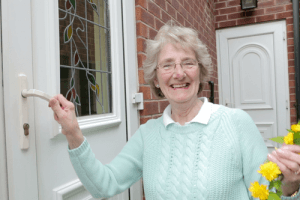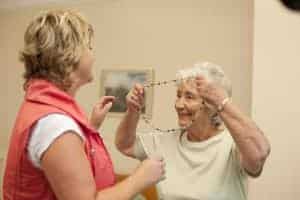Look out for these signs that you may need to seek help caring for an elderly parent, for their benefit and yours to prevent exhaustion or caregiver burnout.
There are currently 5.4 Million people in the UK caring for a family member often with no financial, emotional or practical support. Tthat figure is made up of all kinds of caregiving arrangements, including those who, just like you, care for an elderly parent.
Caring for an elderly parent is a rewarding role that most people take up willingly. The benefits can include a closer relationship with your parent, the satisfaction of knowing you have helped your parent remain in their own home.
The Live-in Care Hub Better At Home Report 2019 recently found that 97% of people would rather avoid care homes if they can. Those caring for their parents can also sometimes find that their own children benefit from being around their grandparents in a multi-generational household arrangement. Children are able to learn about the older generation, understand the responsibilities of caring for a person, and they get to hear all the stories and memories their grandparents have to share.
The Challenges Of Caring For An Elderly Parent
Of course there are many benefits to caring for an elderly parent, but the position does not come without its challenges. Here are some of the potential challenges associated with caring for an elderly parent:
- Needing to adjust your home
- The added stress of managing your parents finances and affairs
- Physical demand
- Emotional demand
- Potential negative impact on your career
- Potential negative impact on your life with your own family
These challenges are manageable but it is also important to look after your own needs and avoid exhaustion. If you have plenty of support in place and take appropriate time for yourself burnout is avoidable. However, it makes sense to seek help caring for a parent or other relative if you find yourself suffering from any of the following signs:
- Withdrawing from your family and friends
- Loss of interest in things you enjoyed before
- Loss of appetite or comfort eating
- Fatigue
- Issues with sleeping
- Being run down
If you identify with these signs of caregiver burnout it is important to seek help. Speak to friends and family, speak to your GP, or consider reaching out for help and advice on some respite care so that you can have a break from your caring duties. Do not be afraid to seek help, you can be a happier person and a better caregiver when you feel healthy in your body and mind.
It may be that even with the best of self-care, your duties are still too much. Maybe the demands are greater because your parent has dementia or their needs are greater than they used to be. In this instance it is important that you reach out to get some regular professional support.
Do seek help, do recognise when you need help and do reach out. You deserve to be happy just as much as your parent does, and there is plenty of support available to you if you just reach out to arrange it.
For impartial advice about the care options available in your parent’s own home:
Call us on 0330 311 2906
email us at hello@liveincarehub.co.uk
Members of the Live-in Care Hub cover the whole of the UK and the Channel Islands so help is always available close to home. You can find the companies that provide services in your area here.





